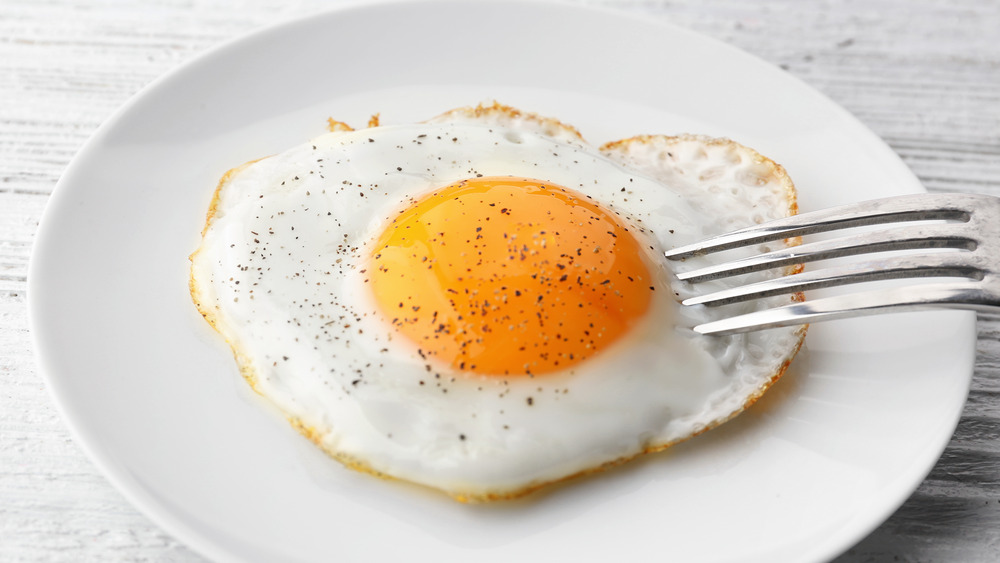The Real Health Difference Between Egg Whites And Whole Eggs
For such a simple food, eggs have been the source of confusion for far too long. It's time to get to the bottom of the misconceptions and recognize the differences between the whole egg and just the white. Whether you've seen the option for an egg white omelet in a restaurant or come across a carton of egg whites in the supermarket, it's clear that some people prefer to eat only the whites (or make a lot of meringue).
According to Eco Watch, egg whites are 90 percent water and 10 percent protein. This drops the number of calories significantly, with a large egg white clocking in at 16 calories, versus 71 for a whole egg (via Eco Watch). However, decreased calories mean a loss of important elements that make whole eggs such a nutritious choice. While fans of egg whites mainly focus on the fact that two-thirds of the protein remains intact (4g vs 6g), along with 0g of fat and no cholesterol, there's more to it.
Pretty much all of the micronutrients contained in eggs are found in the yolk (via Eco Watch). These are plentiful, and include all of the B vitamins, vitamin A, folate, riboflavin, iron, selenium, and phosphorous (via Nutrition Data). Additionally, yolks contain significant quantities of lutein, which is important for eye and brain health, and choline, an essential nutrient that aids in brain function (via Egg Farmers). Eggs are also a source of complete protein and a great option for ovo-vegetarians (via Live Science).
What should you keep in mind?
Yes, the yolk contains all of the cholesterol, too, but it isn't as bad as you think. In the past, it was thought that high cholesterol in food translated to high blood cholesterol, but researchers confirm it isn't true (via Harvard Health). If you're still not convinced, Examine reports on studies that include people who eat up to six eggs a day with no effect on blood cholesterol. Though a moderate intake is advised, yolks should not be demonized, because they contain a significant amount of micronutrients.
While cholesterol in your diet isn't the issue, saturated and trans fats stimulate your liver to create cholesterol, according to researchers at Harvard Health. Eggs mainly contain mono- and polyunsaturated fats and therefore do not contribute significantly to these effects (via Nutrition Data). However, be mindful of what you serve with your eggs: Classic breakfast foods such as bacon, sausages, fried potatoes, and greasy pastries do indeed contain saturated fats and are the more likely culprits.
Ultimately, if you are looking for a pure protein, fat- and cholesterol-free option, go for the egg whites. If you want to benefit from all of the impressive nutritional advantages packed into an egg, go for the whole thing.

